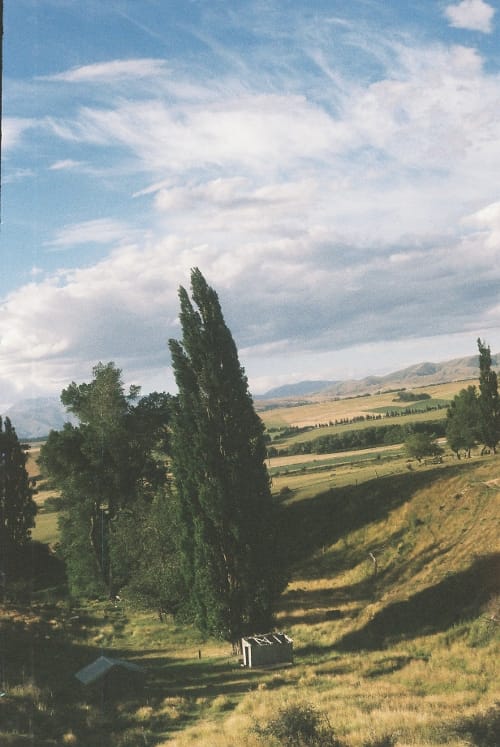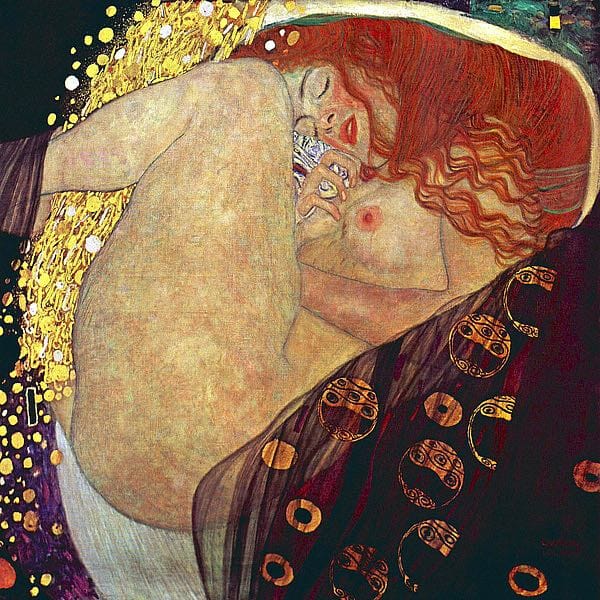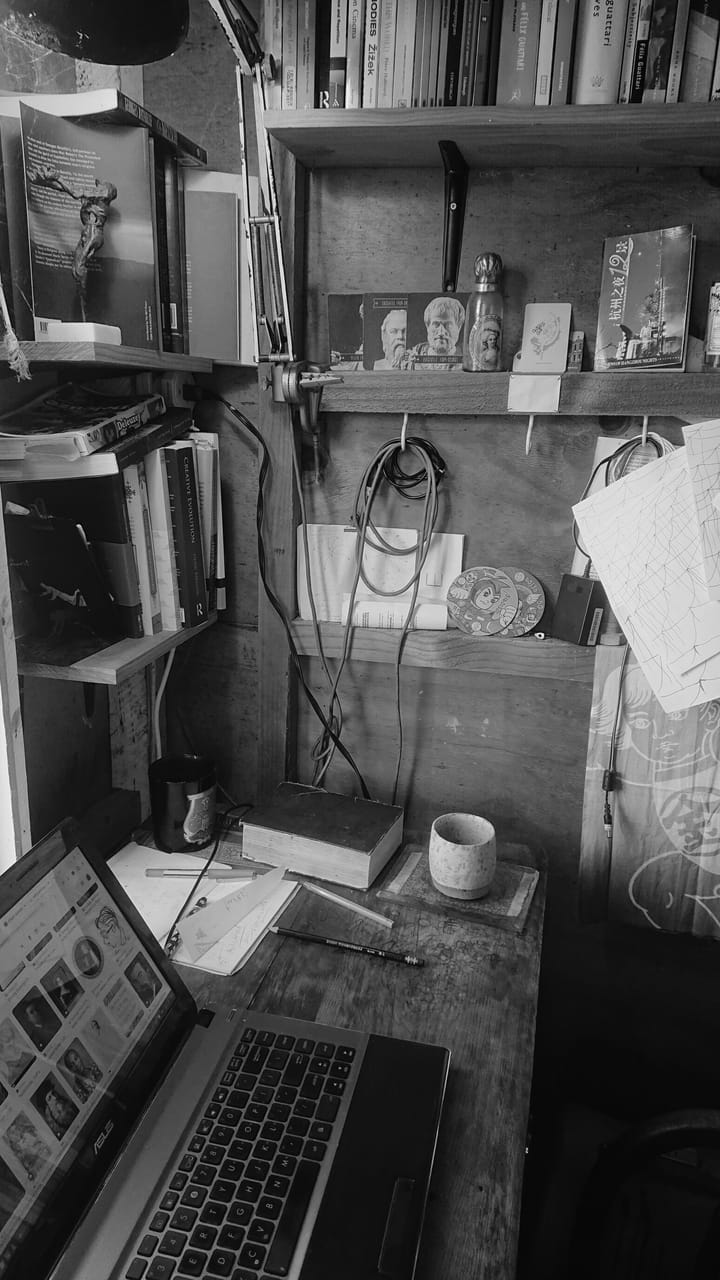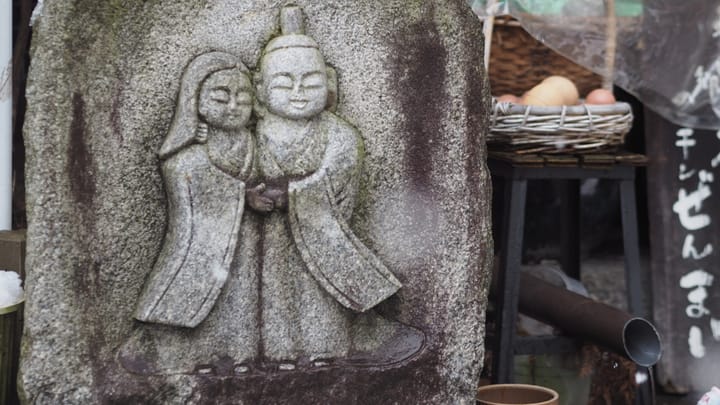enantiomorphosis: the messianic | Danaë, or resistance

by the fact that I am here, you gain everything; by the fact that I am not, you lose nothing.
OR
I AM THAT WITHOUT WHICH THIS IS NOT.
OR
the surface cannot make contact with the surface.
BEFORE EVERYTHING WAS MANIFEST

Danaë, or resistance
Almost a thousand days at sea on my stomach,
Which is how dying must seem,
Enough time to kill a president,
Nine hundred and sixty-four,
Until I got around to making a full confession,
Consistent with the facts as they were brought before me,
And confessed in the isolation of my cell,
Where I’d received not one sympathetic visitor,
To a crime I hadn’t and had no need to have committed,
The commission of which had occurred in a country so far away,
So removed was it from my immediate environment,
After almost a thousand days,
I counted nine hundred and sixty-four,
That it appeared to be a lost place of innocence,
A distant paradise of the original crime,
To bear no plausible relation to my predicament,
My treatment was shameless and none here was guiltless,
My jailors were my judges were my torturers,
On each instance when I asked the embassy to intercede,
This was after all a friendly country,
To report on the conditions of my captivity,
Something not easy to organise,
And make a formal protest on my behalf,
In almost a thousand days this happened three times,
I was threatened before the representative arrived,
By the same official to whom I’d appealed as a foreigner,
By the same judge who had presided at my first hearing,
By the same torturer who remained present at every interview,
To make sure I said nothing about the beatings I was given,
That he gave the orders and the threats made weren’t just lazy,
There was no doubt in my mind not after the first occasion,
Because the guards weren’t idle they were systematic,
They towered above me like waves,
Waiting to crash down on his word,
Entering between them and afraid to sweat,
The embassy man drifted in and hovered with his escort,
His prison fear politely hidden under citrus aftershave,
He kept his face permanently averted from me,
Even as I tried to produce the evidence written on my body,
And the official smiled and gained the upper hand,
As he explained the difficulties in this case,
The potential for obstruction that it posed to good relations,
To the straight course of justice and their mutual understanding,
While the sweat ran freely down his back and stained his shirt,
And the other nodded at what was not seen to be done,
Both little men in whose eyes I was always guilty,
As the powerless are always seen to be guilty,
But I wasn’t powerless and my confession was like a prayer,
Whispered out over the stormy seas in which I was tossed,
Without doing anything to calm them when it came,
Pressed against the wall of water without human consequence,
Into the empty ear so that I’d to repeat it and repeated,
It was a prayer to let the immeasurable evil sleep,
Even as I gave the words of my confession and prayed,
I heard their profanity shriek against the wind,
It was rude of me to single out only one and that one mine,
In the wild seas inflamed by their innumerable crimes,
The virtual and absent one that called forth all the rest,
As if singling myself out among and from the multitude,
As if I’d a special relationship to claim but with whom?
How could I decide that I alone remained uninfected,
When every night and day of nine hundred and sixty-four,
I was treated for the symptoms of a disease,
For a plague infecting even the dust-motes in the air,
So to put a name of criminality or injustice on it,
Although these were the sickness and were definitely real here,
Would be like extending the metaphor to actual victims,
Elsewhere in that plague-ridden city and condemning all its citizens,
But I was asleep awake alone and by then it was all one,
I lay in a painted over box at sea on my stomach,
Without a voice to sing to me while I slept,
While for almost a thousand days they deprived me of my sleep,
And I found asleep awake I’d nothing any more to lose,
I could say that almost two months in I suffered a heart attack,
And I could speak of torture and I could give an itemised account,
But to say it would be too calculating and not calculating enough,
It would not be the calculation I made of being alive at the limit,
And would not measure how attractive death appeared to me,
Because that cost goes beyond all possibility of loss or gain,
It wouldn’t make the smallest difference to measure it,
And I could tell and measure nothing that would make any sense,
If I profited at all it was from the smallest difference,
That separated me asleep from what I suffered awake,
As if the terror were not terror to me,
It was curious to see how it happened,
How terror was split like a word in a song or a metaphor,
And as in sleep for nine hundred and sixty four days,
How nothing happened waking it was curious,
It occurred to me I could protest and turn the tables on my captors,
I realised they were more worried about my death than I was,
Not that dead I’d be worth nothing to them,
But that dead I’d be an obstacle in that mad economy,
A deficit a bad debt and they’d be questions they couldn’t answer,
That my body would not stay buried,
I saw how careful they were with their canes and wires,
How rational the modes of their torture were,
And what irrational fear hid behind the calmness of their method,
My first day in they hung me from the door so I couldn’t sleep,
They took me down and used a rattan cane sometimes a cudgel,
To beat my scrotum and the souls of my feet then hung me back up,
On tiptoe like a dancer so I couldn’t reach the floor,
They hog-tied me and suspended upside-down on ropes,
They’d better access to the undersides of my body,
Then they’d drop me kick me and stamp on my scrotum,
And there were days an old car battery would be wheeled in,
On a porter’s trolley and I’d be hot-wired in the usual places,
But the worst wasn’t this the worst was lack of sleep,
So when my heart stopped beating and I heard them panic,
I woke up to the fact they’d pulled up short,
That for all their brutality they would not kill me,
This was of course a friendly country and,
For all the force and fury of the storm,
I could sleep through it and not play along,
For almost a thousand days I refused,
Because they didn’t have the power that they took from me,
I refused to give it and I took it back in little things,
Small gestures that were impossible before,
Like refusing to wear my prison uniform,
On a scale I knew would escalate,
But I was prepared to accept my destruction,
Which is why I wouldn’t recommend doing what I did,
My health suffered and suffered more lastingly,
Through what I did than it had or would have at their hands,
I became my torturer my jailor and finally my judge,
There was nothing heroic in my brinkmanship,
So when I confessed my guilt at last,
No way was that some innocent act,
I saw these as the steps leading up to it and still do,
With shame and fear and guilt attendant on each one,
When I left my prison uniform folded there was a pause,
I wore my boxers and my shorts until these were taken,
Then at my own choice I went naked in my cell,
And I neither spoke again nor said one audible word,
Not for almost a thousand days until the end,
But without my no there’d be no song,
Since I’d no longer any clothes to be taken to be washed,
I didn’t wash myself any more and in an odd symmetry,
With the strange logic of a game with children,
Or the answer of atheism to an absent God,
I was denied the right to ablute,
A right I’d already abrogated,
I had a bucket and the bowl my food came in,
When one was emptied or the other filled,
It was curious to see the change,
Four or five guards entered my cell every time,
And just as earlier two stood by the door,
While the others conducted their business,
But unlike before it had become my cell,
My territory and I wasn’t afraid of being crushed,
The storm of their brutality couldn’t touch me,
I lay impervious to the sick blue light,
Stretched out but aware they knew it too,
However vaguely and instinctually,
Because they kept their mouths shut,
And their actions to a minimum,
As if I was a guest in the house of their master,
Whose visits when they came could not be called friendly,
But he was clearly a little deflated and petulant even,
Faced with my rejection and my silent treatment,
As if I’d turned my back on him and rolled away to sleep,
There was that love lost and while the beatings didn’t stop,
He beat himself and didn’t invite the embassy man again,
I had no time either to congratulate myself,
Or to wonder about the nature of betrayal,
A circle route traveled step by step,
Without the least regard for how it turns us right around,
How the innocent becomes the guilty and the host the guest,
How it leads us back to our beginning,
I spread my food and faeces over the walls of my cell,
I put it in my hair and covered my face and body with it,
After nine hundred and sixty-four days,
It was in that state I made my confession,
And confessed to a crime I hadn’t,
And had no need to have committed,
It came like a prayer to you like a song,
Almost a thousand days at sea on my stomach,
Which is how dying must seem,
Enough time to kill a president,
I counted nine hundred and sixty-four
…
To the one whose living testimony this piece recalls
And from which it borrows perhaps too freely:
“If my prayer is rude
Or outside justice,
Forgive me.”
(Simonides’ “Danae,” trans. Anne Carson, in her Economy of the Unlost,
Princeton Uni. Press, New Jersey, 1999)
…
(February, 2007)


